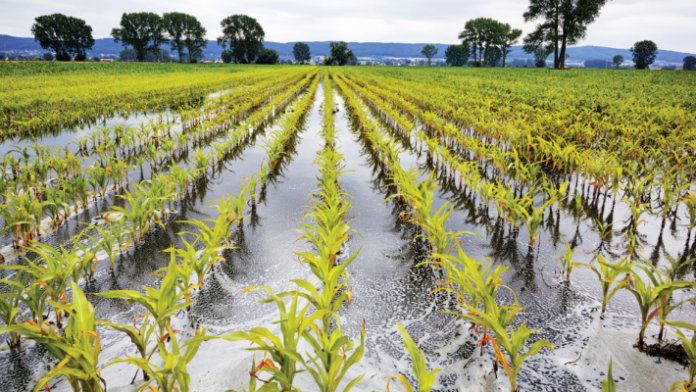Following a recent notification by the Nigerian Meteorological Agency (NIMET), agricultural specialists have given farmers in Northern Nigeria advice on what actions to take.
Remember how the Nigerian Meteorological Agency (NiMet) said that in 2025, rainfall would be postponed in eight northern states?
Its 2025 Seasonal Climate Prediction (SCP) included the forecast.
The agency listed the states in a statement, including Adamawa, Kwara, Nasarawa, Kaduna, Niger, Benue, and Plateau.
Rainfall was predicted to begin early in Delta, Bayelsa, Rivers, Anambra, and parts of Oyo, Ogun, Osun, Ondo, Lagos, Edo, Enugu, Imo, and Ebonyi.
Parts of Zamfara, Katsina, Kano, Kaduna, Jigawa, Plateau, Bauchi, Borno, Yobe, Adamawa, Taraba, Niger, Kwara, Kogi, FCT, Ekiti, and Ondo States are expected to have an earlier than usual finish to the rainy season.
“Parts of Kaduna, Nasarawa, Benue, Lagos, Kwara, Taraba, Oyo, Ogun, Cross River, Delta, Akwa Ibom, Ebonyi, Anambra, and Enugu States are expected to experience a delayed end of season,” the statement stated.
However, according to NIMET’s forecast, the rainy season will not begin early this year in some northern states, Professor Abba Garba Gaya of the Faculty of Agriculture at Aliko Dangote University in Kano said, advising farmers to modify their planting season strategy accordingly.
Professor Gaya ascribed this trend to climate change and human activities that worsen the environment in an interview with the Daily Post.
Farmers should think about planting early-maturing crops, such as those that mature in roughly 50 days, as the rains are not anticipated to arrive early. Challenges may arise for crops that take three months or longer to mature, he said.
To reduce losses if the rains are delayed, he also suggested that farmers look for seeds that mature early.
To guarantee food security this year, Gaya also advised farmers to “avoid activities that harm the environment, such as deforestation, and to consult agricultural experts before making decisions on their farms.”
Our correspondent also talked to a few Kano farmers who were worried about the NIMET forecast but who now had a better idea of how to deal with the problem and were hopeful that they could manage it.
Despite NIMET’s warning, Ibrahim Baba, a rice farmer in Kano’s Kura Local Government Area, stated that he still hopes for a lot of rain.
Since it is in God’s hands, I pray that we get enough rain. Forecasts don’t often work out as expected, he said.
“Nevertheless, I have taken the advice of experts to plant early-maturing varieties to avoid confusion.”
One of the Nigerian states with a large number of farmers that depend on the rainy seasons for their crops is Kano State, particularly those with little access to water for dry-season farming.

